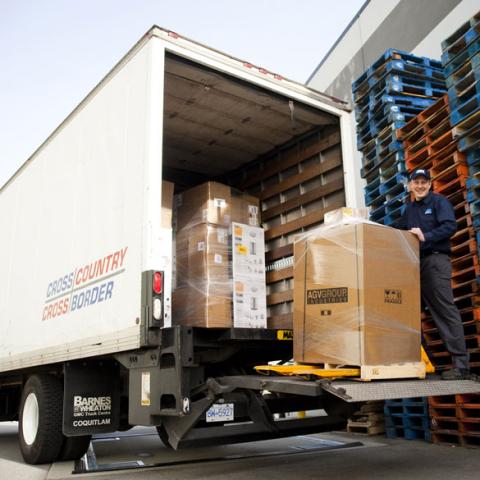In Spite of Trade Slip, Canadian Economy Holds Steady
Though Canada's trade deficit widened in April, imports were strong, and exports — which are key to economic growth — only slid 0.2% after a strong March performance, and actually rose 0.7% in volume terms.
According to Peter Hall, the chief economist with Export Development Canada, the marginal decline in exports is good news. "It means that the growth we have seen to date is still built in. Since last November, Canadian exports have been growing at a 13.5% annualized pace, so if we're taking a breather this month, it's only a very slight one."
The Bank of Canada has been counting on exports, along with business investment, to provide momentum to the recovery, especially given that domestic consumption in the country is slowing. But much of that will depend on what occurs in the United States, where three-quarters of Canadian exports head by way of air, sea, freight, and Pallet Shipping. Though a number of questions have been raised concerning the effect of the sequestration that went into effect in March, so far there seems to be little harm done.
In April, Canadian shipments to the United States expanded by 1.8% to $30.1 billion in the face of the sequestration, while exports to other countries fell 5.6% to $10.2 billion. Imports from those countries were relatively unchanged at $14.6 billion, which caused the slight widening of the Canadian trade deficit.
By industry, the big export movers in April were natural gas, up 14.3%, and non-metallic mineral products, which rose 10.6%. Energy decreased slightly -- by 1.7%-- while industrial machinery, equipment and parts slid 5%.
In terms of imports, energy products increased 6%, motor vehicles and parts 1.9%, and metal ores and non-metallic minerals 10.3%.
In contrast to these hopeful signs, the full economic impact of the flooding in Calgary and Southern Alberta remains to be determined. Initial estimates say it could shave $2 billion off Canada’s GDP for the month of June as businesses and homeowners allocate funds to rebuilding efforts as well as shipping to and from Calgary to replace damaged property. Though this could have a beneficial effect on the local economy in the near term, economists have indicated that growth stemming from rebuilding efforts is not sustainable, and overall the flood will reduce long term economic productivity of the region.








